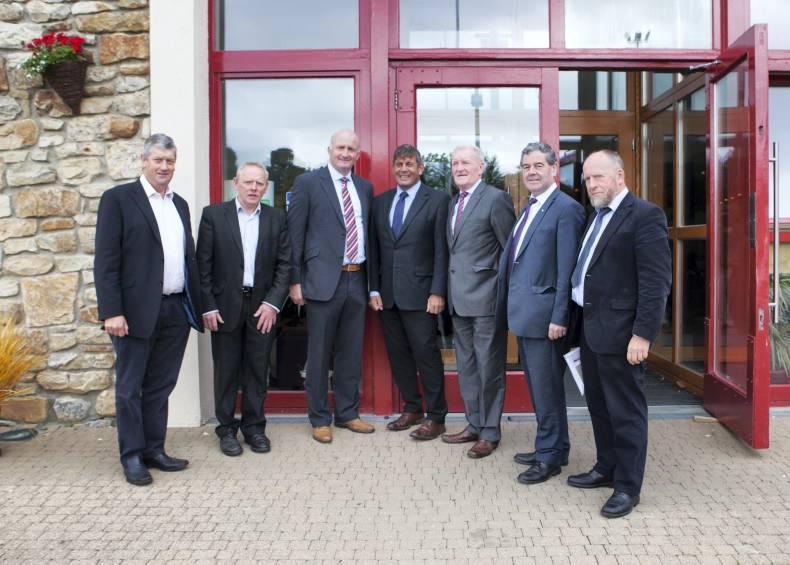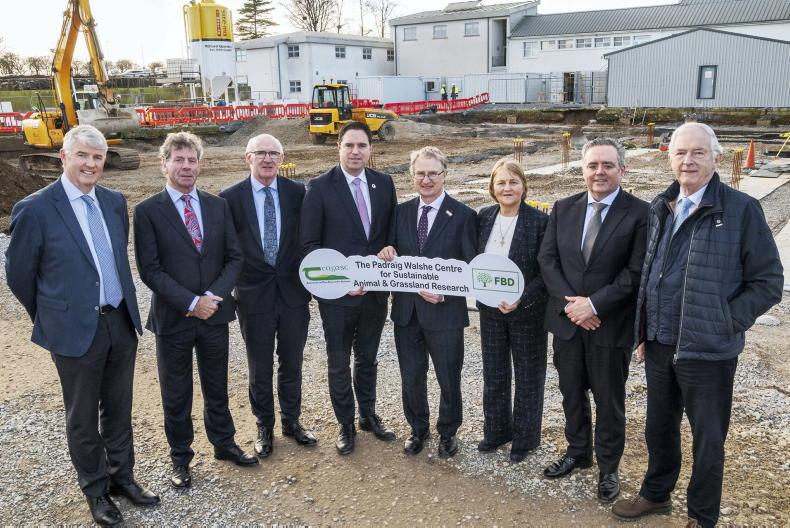With emotions high and legislation allegedly lenient, junior agriculture minister Andrew Doyle met Leitrim IFA in recent weeks in what farmers described as an attempt for the Minister to see “the negative effects blanket forestry is having on the county”.
At present, Ireland is obliged by the EU to increase forestry in the country to occupy 18% of the agricultural land. Ireland’s forestry level currently stands at 11%. For this reason, desirable incentives for farmers to plant forestry have been implemented through Government policy in an attempt to reach the EU target.
However, these policies are infuriating many in Leitrim as they believe that forestry has now taken over the county and land for grazing is decreasing year on year.
During the course of the meeting, many issues were raised, one of which was the forestry premiums farmers receive when planting. Adrian Kelly, a young farmer from Cloone, Co Leitrim, believes that extra funding given specifically for forestry is completely unfair.
“There is a serious issue on the ground where a farmer can claim his basic payment entitlements as well as claiming his forestry premium which is unfair because as a farmer if you have rushes or bushes growing on your land you are docked your basic payment entitlements and yet these men can come along and plant the land and claim two payments on the one hectare of land,” he said.
“We want to tell the Minister that he shouldn’t allow two payments to be claimed on the one hectare of land,” Kelly continued.
Payments
Furthermore, the premium payments received for forestry are tax-free, leading to an increased interest in planting.
A separate but prominent issue raised was investors from outside the county buying land to benefit from the premiums. For many, the situation has reached crisis point and the introduction of outside investors is unacceptable. Many at the meeting voiced their disapproval of this activity and believe that young farmers can no longer compete with outside buyers, should they want to purchase the land for grazing.
This can be seen by the stories about multiple farmers being refused loans for buying land for livestock grazing. They claim if they planned to plant their land the loan would be granted.
Doyle told the meeting that Minister Michael Creed had talked with the banks already on credit plans for farmers.
“Minister Creed has talked to the banks about flexibility. We certainly need to get incentives in and I know we intend to target young farmers,” Doyle said.
From a social point of view, criticism was directed at the plantations for “driving people from their homes”. People believe that as a result, population will decrease, schools will close, and communities will be irreversibly damaged.
Maureen Murray, a former executive council rep of the IFA, feels the Government must take responsibility for the planting as well as the social decline of the county.
“We kept the schools open; we built the community centre, the road and the water schemes. We see now that the tide has turned under the new CAP and especially under the Pillar II funding where the speculator (investor from outside the county) and the farmer that wants to cease farming are better looked after than the farmer that wants to continue on,” Murray said.
“Our Government has a massive say in this. They want the west of Ireland wiped out. You are sitting in the parish of Cloone at the moment and we reckon there is over 35% of the parish planted,” she continued.
Along with Wicklow, Leitrim has the highest percentage of planted land in the country, with 16.8% forested. However, Murray disputes this figure.
“We are saying that is incorrect. I have no doubt that there is 35%- 40% of this county under forestation. I want them records to come out and the Department of Agriculture should be able to give us them records.”
The other side of the argument is also quite real. Farmers who wish to plant land and benefit from the incentives believe planting is positive. Many argue that without the option of planting forestry, their farming enterprise would not be in any way viable.
Another farmer, who wished to remain unnamed, argued that the marginal land in Leitrim suited planting forestry and to choose livestock grazing over forestry would be “foolish”.










SHARING OPTIONS